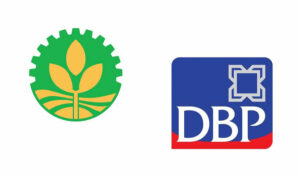




Philippines Trade Update: Trade trajectories trend along
 DOWNLOAD
DOWNLOAD

Policy Rate Updates: Double cut finale
 DOWNLOAD
DOWNLOAD

Monthly Economic Update: One for the road
 DOWNLOAD
DOWNLOAD


Planned LANDBANK-DBP merger to be scrapped — Recto

The planned merger of the state-run lenders Development Bank of the Philippines (DBP) and Land Bank of the Philippines (LANDBANK) will no longer push through due to their conflicting mandates.
“It’s not pushing through because basically there is no benefit gained from combining the two institutions. We have separate mandates and it’s best for the country that both institutions remain independent, pursuing their separate mandates,” DBP President and Chief Executive Officer (CEO) Michael O. de Jesus told reporters on the sidelines of an event on Monday.
“No need for a merger. Both have different mandates. It will be good to continue having two government depository banks,” Finance Secretary Ralph G. Recto told BusinessWorld via text message when asked for confirmation.
BusinessWorld also sought comments from Malacañang and LANDBANK, but they did not respond as of press time.
The two state-run banks are also unlikely to be merged at least until the end of the current administration’s term, Mr. De Jesus noted.
“We work together [with LANDBANK]. It’s always best to have these two institutions. There’s healthy competition also… What’s good for the country is really having two separate independent banks, each pursuing their own mandates,” he added.
LANDBANK President and CEO Lynette V. Ortiz previously said they would discuss the merger with Mr. Recto.
“As far as we’re concerned, we’re operating on our own,” she told reporters on Jan. 26.
Meanwhile, Bangko Sentral ng Pilipinas (BSP) Deputy Governor Chuchi G. Fonacier said in a Viber message that the central bank has not received an application for the planned merger.
Former Finance Secretary Benjamin E. Diokno in March 2023 announced that President Ferdinand R. Marcos, Jr. is in “support” of the merger of the state-run lenders, with LANDBANK as the surviving entity. The transaction had been expected to be completed before the end of that year.
The merger was expected to create the largest bank in the country in terms of assets. Data from the Department of Finance (DoF) showed the consolidated bank would have an estimated asset size of PHP 4.185 trillion and deposit base amounting to PHP 3.588 trillion.
The DoF earlier said the merger can generate PHP 975 million in savings annually for the government through the consolidation of the banks’ branch operations.
DBP officials earlier said the merger could endanger the economy as the consolidated entity would be too big to fail, with the concentration of risks in one lender making it vulnerable.
LANDBANK’s primary mandate is to promote countryside development and provide financial assistance and support services to its priority sectors, namely farmers, fisherfolk, agrarian reform beneficiaries, agri and aqua businesses and agri-aqua related projects of local government units and government-owned and -controlled corporations; micro, small, and medium enterprises; and countryside financial institutions.
Meanwhile, DBP is tasked to provide banking services to cater to the medium- and long-term needs of agricultural and industrial enterprises, especially small- and medium-scale industries. It is also the government’s designated infrastructure bank.
On the other hand, asked about DBP’s contribution to the Maharlika Investment Fund (MIF), Mr. De Jesus said there will be no change.
Under Republic Act No. 11954, the DBP and LANDBANK are mandated to contribute P25 billion and P50 billion, respectively, as the initial seed capital for the MIF. The two state lenders remitted the funds to the Treasury in September.
“It (contribution) will stay there. Both LANDBANK and DBP are on the board of Maharlika. So, we expect that to do very well. It’s just building the organization at this point,” he said.
Enrico P. Villanueva, senior lecturer of economics at the University of the Philippines Los Baños, said in a social media message that the scrapped merger could leave the DBP unable to address the capital adequacy impact of its MIF contribution.
“I still think there are economies of scale or efficiencies to be achieved from the merger,” Mr. Villanueva said.
LANDBANK and DBP sought regulatory relief from the BSP after making their contributions to the MIF. — A.M.C. Sy
This article originally appeared on bworldonline.com





 By BusinessWorld
By BusinessWorld